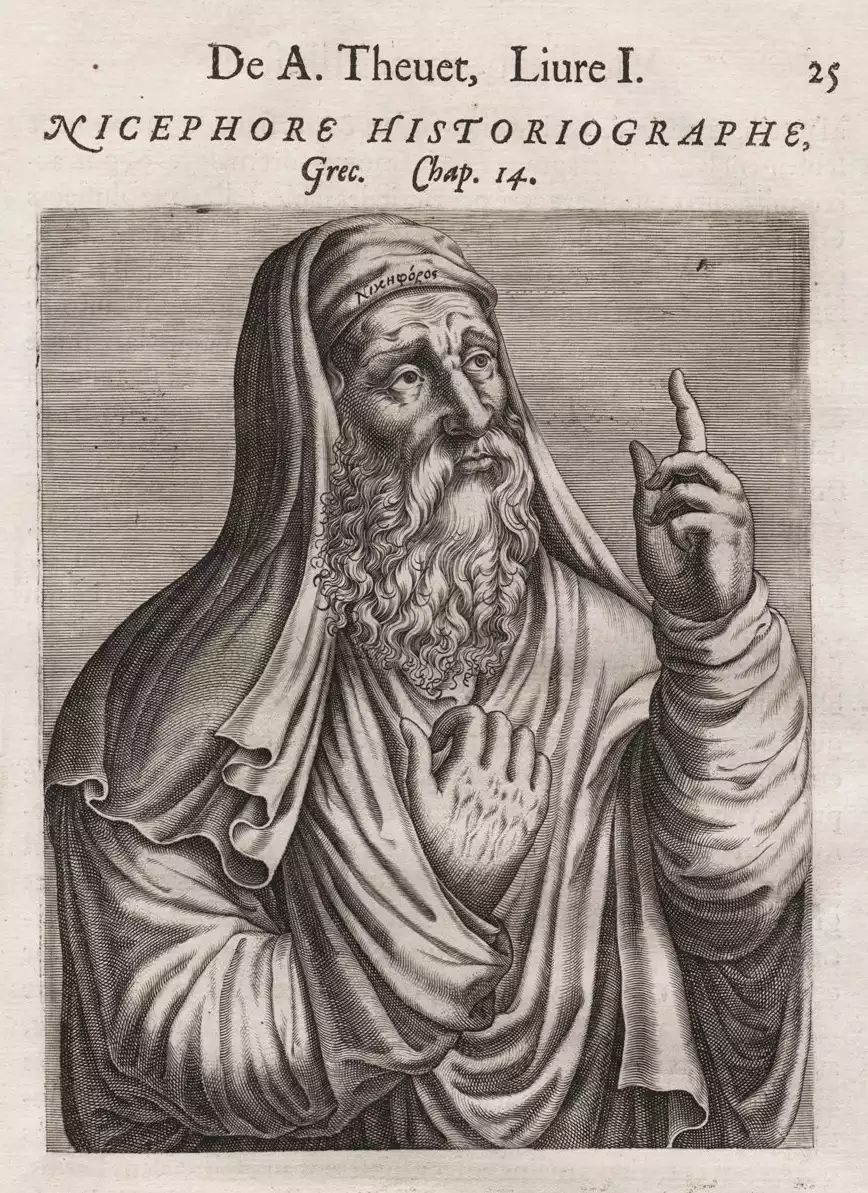
Nikephoros Gregoras, a Byzantine historian and theologian, was born circa 1295 and passed away in 1360. His life and work were deeply intertwined with the religious and intellectual currents of his time, notably his staunch criticism of Palamism, which marked him as a significant but controversial figure in the history of the Eastern Orthodox Church.
Early Life and Education of Nikephoros Gregoras
Nikephoros Gregoras, initially hailing from the city of Heraclea Pontica, rose to prominence in the Byzantine Empire due to his extensive education and intellectual prowess. From a young age, Gregoras exhibited a keen interest in theology and classical learning, which laid the foundation for his later achievements. He moved to Constantinople, the heart of the Byzantine world, where he furthered his studies under the tutelage of prominent scholars. This period was critical in shaping his theological views and his approach to historical writing.
Gregoras’s Involvement in Byzantine Theological Debates
During the 14th century, the Byzantine Empire was a crucible of theological debates, with the controversy over Hesychasm, a mystical practice in Eastern Orthodox monasticism, taking center stage. Nikephoros Gregoras emerged as a vocal critic of Palamism, the theological underpinning of Hesychasm championed by Gregory Palamas. Gregoras’s opposition was not just theological but also philosophical, as he saw Palamism as diverging from the traditional Byzantine understanding of the divine essence and energies. His writings and debates on this subject brought him into direct conflict with established church authorities and significantly influenced the theological discourse of his time.
Literary Contributions of Nikephoros Gregoras
Nikephoros Gregoras, beyond his theological engagements, was a prolific writer, contributing significantly to Byzantine literature. His most renowned work, ‘Roman History’, spans 37 books and offers a detailed account of Byzantine history from 1204 to 1359. This monumental work is not only a historical record but also reflects Gregoras’s perspectives on theology, philosophy, and science. His writings exhibit a critical and analytical approach, showcasing his depth of knowledge across various disciplines. Furthermore, Gregoras’s correspondence with other contemporary scholars provides invaluable insights into the intellectual life of Byzantine society.
Legacy and Impact of Gregoras’s Work
Despite the controversies he faced, Nikephoros Gregoras’s impact on Byzantine intellectual history remains undeniable. His works, particularly his critiques of Palamism, continued to be discussed and debated long after his death. Gregoras’s historical writings have been invaluable for modern historians in understanding the Byzantine world, offering a unique viewpoint on the political, religious, and cultural dynamics of the era. His legacy is that of a scholar who, regardless of the prevailing orthodoxies, sought to express and defend his own understanding of theology and history.
Nikephoros Gregoras, with his profound contributions to Byzantine historiography and theology, remains a figure of significant scholarly interest. His life and work encapsulate the vibrant intellectual spirit of his era and highlight the complex theological debates that shaped Byzantine society. Gregoras’s legacy endures through his writings, which continue to be a valuable resource for understanding the Byzantine Empire’s rich history and culture.
References
Angelov, Dimiter. “The Byzantine Hellene: The Life of Emperor Theodore Laskaris and Byzantium in the Thirteenth Century.” Cambridge University Press, 2019.
Harris, Jonathan. “The End of Byzantium.” Yale University Press, 2010.
Laiou, Angeliki E., ed. “The Economic History of Byzantium.” Dumbarton Oaks, 2002.
